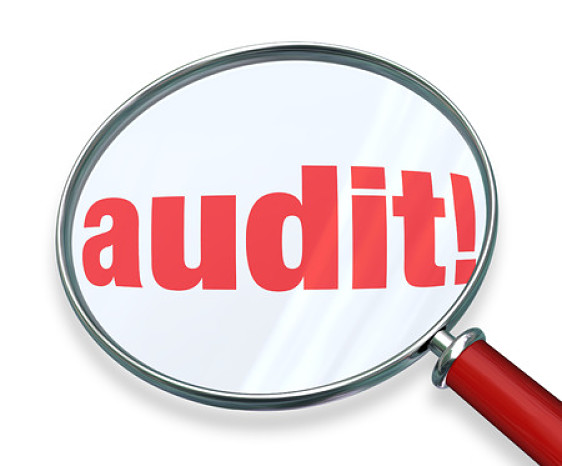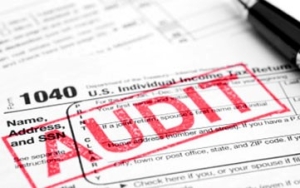IRS Audit Red Flags
Hi Folks,
Hope you’re all happily settled into a busy 2012.
When meeting with a tax client, we are often asked “if I do this, will it send up a red flag”? Good question. Well, our friends at Kiplinger’s have compiled a dirty dozen list of IRS Targets. Here is a run-down of the top 12 and a link to the full article is at the bottom of the message.
1. Making too much money
Although the overall individual audit rate is about 1.11%, the odds increase dramatically for higher-income filers. IRS statistics show that people with incomes of $200,000 or higher had an audit rate of 3.93%, or one out of slightly more than every 25 returns. Report $1 million or more of income? There’s a one-in-eight chance your return will be audited.
2. Failing to report all taxable income
The IRS gets copies of all 1099s and W-2s you receive, so make sure you report all required income on your return. IRS computers are pretty good at matching the numbers on the forms with the income shown on your return. A mismatch sends up a red flag and causes the IRS computers to spit out a bill.
3. Taking large charitable deductions
We all know that charitable contributions are a great write-off and help you feel all warm and fuzzy inside. However, if your charitable deductions are disproportionately large compared with your income, it raises a red flag.
4. Claiming the home office deduction
Like Willie Sutton robbing banks (because that’s where the money is), the IRS is drawn to returns that claim home office write-offs because it has found great success knocking down the deduction and driving up the amount of tax collected for the government. If you qualify, you can deduct a percentage of your rent, real estate taxes, utilities, phone bills, insurance and other costs that are properly allocated to the home office. That’s a great deal. However, to take this write-off, you must use the space exclusively and regularly as your principal place of business. That makes it difficult to successfully claim a guest bedroom or children’s playroom as a home office, even if you also use the space to do your work. “Exclusive use” means that a specific area of the home is used only for trade or business, not also for the family to watch TV at night.
5. Claiming rental losses
Normally, the passive loss rules prevent the deduction of rental real estate losses. But there are two important exceptions. If you actively participate in the renting of your property, you can deduct up to $25,000 of loss against your other income. But this $25,000 allowance phases out as adjusted gross income exceeds $100,000 and disappears entirely once your AGI reaches $150,000.
6. Deducting business meals, travel and entertainment
Schedule C is a treasure trove of tax deductions for self-employeds. But it’s also a gold mine for IRS agents, who know from experience that self-employeds sometimes claim excessive deductions. History shows that most underreporting of income and overstating of deductions are done by those who are self-employed. And the IRS looks at both higher-grossing sole proprietorships and smaller ones.
7. Claiming 100% business use of a vehicle
Another area ripe for IRS review is use of a business vehicle. When you depreciate a car, you have to list on Form 4562 what percentage of its use during the year was for business. Claiming 100% business use of an automobile is red meat for IRS agents. They know that it’s extremely rare for an individual to actually use a vehicle 100% of the time for business, especially if no other vehicle is available for personal use.
8. Writing off a loss for a hobby activity
Your chances of “winning” the audit lottery increase if you have wage income and file a Schedule C with large losses. And if the loss-generating activity sounds like a hobby — horse breeding, car racing and such — the IRS pays even more attention.
9. Running a cash business
Small business owners, especially those in cash-intensive businesses — think taxis, car washes, bars, hair salons, restaurants and the like — are a tempting target for IRS auditors.
10. Failing to report a foreign bank account
The IRS is intensely interested in people with offshore accounts, especially those in tax havens, and tax authorities have had success getting foreign banks to disclose account information.
11. Engaging in currency transactions
The IRS gets many reports of cash transactions in excess of $10,000 involving banks, casinos, car dealers and other businesses, plus suspicious-activity reports from banks and disclosures of foreign accounts. A report by Treasury inspectors concluded that these currency transaction reports are a valuable source of audit leads for sniffing out unreported income. The IRS agrees, and it will make greater use of these forms in its audit process. So if you make large cash purchases or deposits, be prepared for IRS scrutiny.
12. Taking higher-than-average deductions
If deductions on your return are disproportionately large compared with your income, the IRS may pull your return for review. But if you have the proper documentation for your deduction, don’t be afraid to claim it. There’s no reason to ever pay the IRS more tax than you actually owe.
Read more: http://www.kiplinger.com/features/archives/12-audit-red-flags-the-irs-looks-for.html#ixzz1kONt6av7



